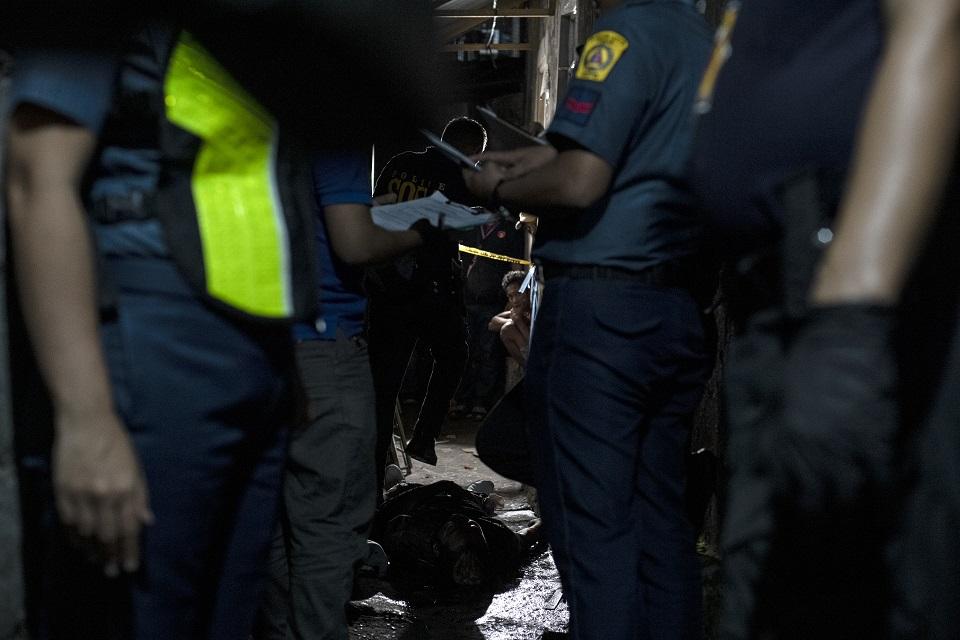What may happen amid ICC prosecutor’s request for full probe into Duterte drug war deaths

The prosecutor of the International Criminal Court (ICC) has formally called for a full-blown investigation into the deaths being linked to President Rodrigo Duterte’s campaign against illegal drugs, a pronouncement that drew mixed reactions in the country.
Some groups called it a step in the right direction to ensure accountability for what they believe were unlawful killings, while Malacañang said the ICC had no jurisdiction to investigate.
The decision whether or not to allow the prosecutor to conduct an investigation belongs to the Pre-Trial Chamber of the ICC. The chamber is composed of three judges.
“If the requirements are not met for initiating an investigation, or if the situation or crimes are not under the ICC’s jurisdiction, the ICC’s Prosecution cannot investigate. The Prosecution may seek again the confirmation of charges, by presenting new evidence,” the ICC said.
The chamber may review a decision of the prosecutor not to initiate an investigation or to prosecute.
Under the Rome Statute, which created the ICC, the Pre-Trial Chamber may issue warrants of arrest and summonses to appear before the Court at the request of the prosecutor.
The chamber may also provide for the protection and privacy of victims and witnesses, the preservation of evidence, and the protection of persons who have been arrested or appeared in response to a summons as well as national security information.
“Once either an arrest warrant or a summons to appear is issued, a case enters the Pre-Trial stage, during which the Pre-Trial Chamber judges determine whether or not there is sufficient evidence for the case to proceed to trial,” the ICC said.
“If the suspect is not arrested or does not appear, legal submissions can be made, but hearings cannot begin.”
During the trial stage, the prosecution must prove beyond reasonable doubt the guilt of the accused.
“Judges consider all evidence, then issue a verdict and, when there is a verdict of guilt, issue a sentence. The judges can sentence a person to up to 30 years of imprisonment, and under exceptional circumstances, a life sentence,” the ICC said.
Judges can also order the convicted person to provide reparations to the victims. Parties may appeal the verdict and the order for reparations.
“Sentences are served in countries that have agreed to enforce ICC sentences. If a verdict of guilt is not upheld, the person may be released,” the ICC said.
The Court does not have its own police force or an enforcement agency, thus cooperation with countries is crucial.
The request—one of Fatou Bensouda's final acts before she stepped down as ICC prosecutor this week—said the Court retains jurisdiction over alleged crimes against humanity that have occurred on Philippine territory during the period when it was a state party to the Rome Statute from November 1, 2011 to March 16, 2019.
Bensouda sought an investigation into the deaths under the drug war from July 1, 2016 to March 16, 2019 and the alleged extrajudicial killings in Davao City in from 2011 to 2016.
British lawyer Karim Khan was sworn in as ICC prosecutor on Wednesday.
Duterte was vice mayor of the city from 2010 to 2013 and mayor from 2013 to 2016.
Presidential spokesperson Harry Roque said on Tuesday that Duterte would not cooperate with the ICC, adding the request for an investigation was “legally erroneous and politically motivated.”
In a statement, human rights advocacy group Centerlaw challenged the government to cooperate with the ICC.
“Though we contest the validity of President Duterte’s unilateral withdrawal from the Rome Statute, we remind his administration that it is nonetheless bound to cooperate with the Court in connection with these criminal investigations and proceedings which were commenced prior to the efficacy of the Philippines’ alleged withdrawal,” Centerlaw said.
“Consistent with their credo: If the administration has nothing to hide, then they should cooperate.”
Malacañang has repeatedly cited the principle of complementarity in which the ICC can only investigate allegations of genocide, crimes against humanity, and war crimes if the domestic courts are unable or unwilling to do so.
The Palace maintained domestic mechanisms are in place to prosecute any alleged crime against humanity in the Philippines.
Roque said an inter-agency panel led by the Department of Justice is looking into thousands of police anti-illegal drug operations that resulted in deaths. — BM, GMA News



